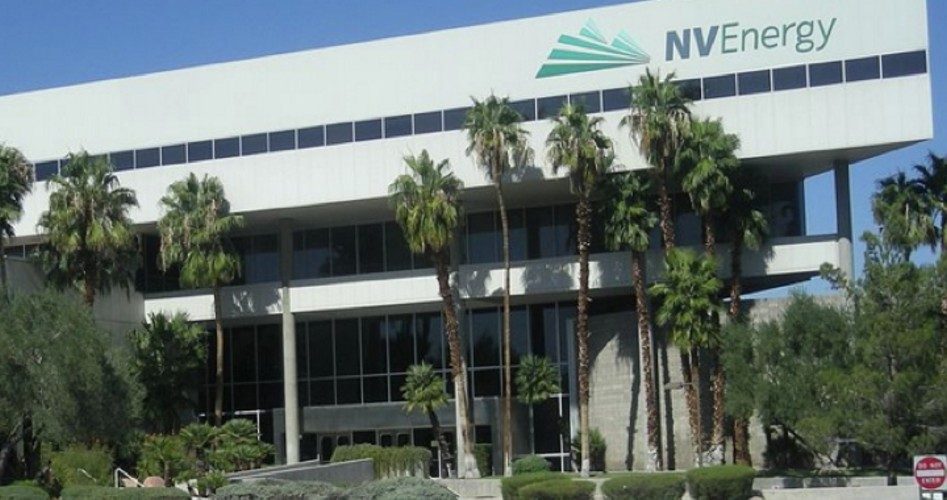
Rory Reid, the eldest son of Senate Majority Leader Harry Reid (D-Nev.), is the chief representative for a Chinese energy firm planning to build a $5-billion solar plant on public land in Laughlin, Nevada. ENN Energy Group, a clean-energy firm that manufactures a range of renewable-energy products, is seeking to construct its solar panel facility on a 9,000-acre stretch of land on a Clark County desert plot.
The controversy stems from the fact that Clark County officials voted to sell ENN the public land for $4.5 million, a figure startlingly below the $38.6-million appraisal. Conveniently, Sen. Reid has been one of ENN’s most prominent supporters, having helped mobilize the firm during a 2011 trip to China. Reid’s influence in the Chinese company has been so compelling that, according to Reuters, last month he tried to “pressure Nevada’s largest power company, NV Energy, to sign up as ENN’s first customer.”
Both Rory and his father have since denied having ever discussed the $5-billion deal. A spokeswoman for Sen. Reid, Kristen Orthman, insisted that he’d never deliberated over the project with his son. Rory Reid added, “I have never discussed the project with my father or his staff.”
Despite his assertions, critics say Rory Reid’s political ties in the deal seems rather explicit. In addition to being the son of a prominent U.S. senator, he also formerly chaired the Clark County commission. Craig Holman, a lobbyist for the consumer rights advocacy group Public Citizen, said Rory’s father is implicating himself in “an iffy ethical landscape” and should recuse himself from the solar project. “Is this just happening because … it benefits the Reid family, or did Harry Reid actually believe in this?” Holman queried.
To expedite the project, ENN recruited Nevada’s largest and most renowned law firm, Lionel Sawyer & Collins, where Rory Reid works. Moreover, Richard Bryan, who has an extensive history in the state’s political system — a former Nevada governor, attorney general, and U.S. senator — heads the Chinese energy firm.
As reported, the ENN deal ignited a heated controversy, mainly because separate appraisals valued the plot of land at $29.6 million and $38.6 million, tens of millions of dollars more than the selling price. However, the county commissioners drafted a series of conditions that must be met before the project can launch, including achievements in job creation and investment, and a provision stating that ENN must have a power company committed to purchasing energy from the new plant. The latter requirement has been the primary obstacle — then, Harry Reid stepped in.
The Nevada senator recently initiated an online discussion, purportedly to address his annual energy summit, as an effort to persuade NV Energy, the state’s largest utility company, to ink a deal as ENN’s first customer. In the July 30 forum, Reid asserted that construction on the project “would start tomorrow if NV Energy would purchase the power.” The power company controls “95 percent of all of the electricity that is produced in Nevada and they should go along with this,” he added.
In addition to Reid’s and his son’s questionable affairs with the ENN project, the Nevada senator has had other dubious political dealings within the clean-energy sector. American solar firm Amonix, for example, recently slipped into financial disarray after receiving $6 million in federal tax credits and a $15.6-million grant in 2007 for research and development.
Amazingly, the company is only 16 months old, without any track record of success, yet it received a multi-million-dollar, taxpayer-funded jackpot. Many critics asked why. In a July article, the Las Vegas Review-Journal offered this answer:
Nevada Sen. Harry Reid, U.S. Rep. Shelley Berkley, D-Nev., and Gov. Brian Sandoval were among the political leaders who lauded the company when it announced it would start making solar panels in the Golden Triangle Industrial Park. Reid in particular has pushed for solar energy research and development in Nevada, drawing parallels between the value of Nevada sunshine and Saudi Arabian oil.
Of course, Amonix was not the only Nevada-based green energy project to lurch into financial ruin. Nevada Geothermal, a renewable energy company that secured a $98-million federal loan guarantee, acknowledged in an SEC filing this summer that “material uncertainties exist which cast significant doubt upon the company’s ability to continue as a going concern.”
Similar to his dealings with Amonix, Sen. Reid was largely instrumental in securing government support for Nevada Geothermal. In fact, according to the New York Times, Reid “pressur[ed] the Department of Interior to move more quickly on applications to build clean energy projects on federally owned land and urg[ed] other member of Congress to expand federal tax incentives to help build geothermal plants, benefits that Nevada Geothermal has taken advantage of.”
And now, it seems Sen. Reid’s political status has influenced not only the green-energy agendas in his state but the financial interests of Nevada’s largest law firm — where it just so happens his son is employed.



